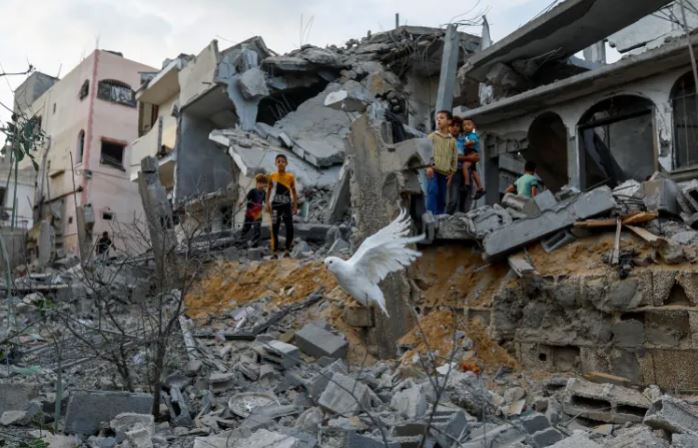Amid rising regional tensions, a joint effort involving the United States, Egypt, and Israel is gaining momentum to provide essential humanitarian aid to the Gaza Strip. The cooperative approach follows a prominent visit to Israel by U.S. President Joe Biden, offering a glimmer of hope for the beleaguered civilians in Gaza.
In the wake of a devastating explosion at a Gaza hospital, which is estimated to have claimed the lives of hundreds and further inflamed regional discontent, several key developments have unfolded:
Investigating the Hospital Blast: The leading members of the U.S. Senate’s Select Committee on Intelligence, representing both Democratic and Republican perspectives, have jointly expressed their conviction that the catastrophic blast at a Gaza hospital on Tuesday was not a result of an Israeli airstrike, as initially thought. Instead, evidence suggests that the incident may have been caused by a malfunctioning rocket launch by “militant terrorists.” This assessment was corroborated by the National Security Council (NSC), which cited intelligence indicating that Palestinian militants in Gaza themselves attributed the blast to an errant rocket or missile launch by the Palestinian Islamic Jihad (PIJ). Israeli authorities have released audio recordings that allegedly capture Hamas militants discussing the explosion and attributing it to a rocket launched by PIJ.
Continued Explosions: On Wednesday, reports emerged of explosions occurring within 100 meters of the Al-Quds Hospital in Gaza City, as reported by the Palestine Red Crescent Society. These blasts targeted multiple residential buildings and key thoroughfares in the vicinity of Al-Quds Hospital and the main headquarters of the organization in the Tal Al-Hawa neighborhood in western Gaza City. Simultaneously, Hezbollah launched six attacks on Israeli military posts along the Lebanese border, employing guided missiles, machine guns, and 57-mm mortars. In response, the Israel Defense Forces (IDF) announced that they were striking Hezbollah targets in Lebanon.
Humanitarian Aid Initiatives: Egyptian President Abdel Fattah el-Sisi has pledged to open the Rafah crossing to facilitate the passage of humanitarian aid into Gaza. This decision came after an hour-long discussion between President Biden and President el-Sisi aboard Air Force One. Nevertheless, the timeline for when the Rafah border crossing will open to allow the transit of humanitarian aid from Egypt into Gaza remains uncertain. Israel’s Prime Minister’s office confirmed that they would not obstruct the flow of humanitarian assistance through the crossing. However, they emphasized that supplies from their own territory would only be allowed into Gaza if Hamas released all hostages. On Wednesday, the Egyptian president attributed the continued closure of the vital crossing to Israeli shelling. Notably, the $100 million in humanitarian aid allocated for Gaza and the occupied West Bank, as announced by President Biden during his visit to Tel Aviv, will be drawn from pre-approved funding, as stated by the White House.
Biden’s Diplomatic Engagement: During his visit to Israel, President Biden acknowledged the potential for criticism but underlined his commitment to achieving concrete progress in the Middle East. He emphasized his frank discussions with Israeli leaders and their accountability for enabling additional assistance to those affected by the conflict. President Biden also disclosed that he encountered “no pushback” from Israeli Prime Minister Benjamin Netanyahu when he raised concerns about humanitarian issues. While specific details of efforts to evacuate Americans and other civilians from Gaza were not disclosed, President Biden assured that “we’re going to get people out.”
Global Involvement: President Biden is poised to deliver a primetime address from the Oval Office, focusing on the United States’ response to the ongoing conflict involving Hamas’ attacks against Israel and Russia’s continued military intervention in Ukraine. Additionally, United Kingdom Prime Minister Rishi Sunak is scheduled to visit Israel as the initial destination of his two-day trip to the Middle East. Meanwhile, Jordan’s Foreign Minister Ayman Safadi reiterated the nation’s unwavering stance against any attempts to relocate the Palestinian population to Jordan.






More Stories
KPLC Customer in Kericho Alleges Bribery Demands, Fictitious Billing, and Lack of Power Restoration
Hon. Seth Steve Okute Launches Campaign for ODM Nomination
Corruption Fuels Unrest in Uganda as Anti-Graft Protests Erupt in Kampala